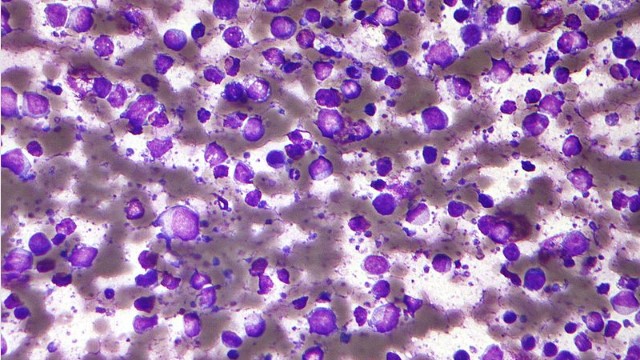 WIKIMEDIA, NEPHRONGilead Sciences’s blood cancer therapy has been administered to just five patients in the two months since its approval, according to a report published last Thursday (December 14) in Bloomberg. Waiting lists for Yescarta—a CAR T-cell treatment for large B-cell lymphomas—have reportedly surpassed 200 people, with some very sick patients dying before receiving the therapy.
WIKIMEDIA, NEPHRONGilead Sciences’s blood cancer therapy has been administered to just five patients in the two months since its approval, according to a report published last Thursday (December 14) in Bloomberg. Waiting lists for Yescarta—a CAR T-cell treatment for large B-cell lymphomas—have reportedly surpassed 200 people, with some very sick patients dying before receiving the therapy.
Originally developed by Kite Pharma—a California-based startup that was bought by Gilead for nearly $12 billion in cash earlier this year—Yescarta is just the second CAR T-cell therapy to be approved in the U.S. Doctors at the 15 cancer hospitals authorized to administer the novel therapy cite problems in obtaining payment for the $373,000 treatment from insurers, including Medicare and Medicaid. “There’s no billing codes for this,” Michael Bishop, director of the cellular therapy program at the University of Chicago Medicine hospital, tells Bloomberg. “It’s been difficult, to be blunt.”
While some hospitals are holding off purchasing the treatment until insurance is guaranteed, others are exploring alternatives. Doctors at MD Anderson Cancer Center—which has a waiting list of more than 100—are allowing patients to sign ...


















